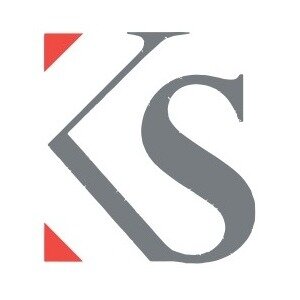Best Education Law Lawyers in Ivory Coast
Share your needs with us, get contacted by law firms.
Free. Takes 2 min.
Or refine your search by selecting a city:
List of the best lawyers in Ivory Coast
About Education Law in Ivory Coast
Education law in Ivory Coast encompasses the legal framework governing the education system in the country. This includes regulations and policies related to the functioning of public and private educational institutions, the rights and duties of educational personnel, students, and parents, and adherence to both national and international standards in education. The legal framework strives to ensure the right to education for all and the maintenance of quality educational standards.
Why You May Need a Lawyer
There are several situations where you may require legal assistance in the field of education law in Ivory Coast:
- Disputes over school admissions or scholarships.
- Cases of discrimination or violation of student rights.
- Regulatory compliance issues for educational institutions.
- Teacher employment disputes.
- Addressing instances of bullying or harassment within schools.
- Special needs accommodation disputes.
- Clarifying parental rights in educational decision-making.
- Understanding compliance with educational reforms and directives.
Local Laws Overview
Key aspects of education law in Ivory Coast that are particularly relevant include:
- The Loi d'Orientation de l'Education Nationale which sets the primary objectives for the education system.
- Laws mandating compulsory education for children from ages 6 to 16.
- Regulations around the establishment and management of private educational institutions.
- Labor laws relevant to teachers and educational staff.
- Anti-discrimination laws ensuring equal access to education for all, including gender equality.
Frequently Asked Questions
What age is mandatory schooling in Ivory Coast?
Schooling is mandatory for children between the ages of 6 and 16.
What are the rights of parents in the education system?
Parents have the right to be informed about their children's progress and to participate in certain school decisions affecting their children.
Can private schools establish their own curriculums?
Private schools can develop their curriculums but must ensure they align with national education standards and guidelines.
Are there laws against discrimination in schools?
Yes, there are laws that prohibit discrimination based on race, gender, religion, and disability in educational settings.
How can teachers address employment disputes?
Teachers can address employment disputes through mediation with school administrations or by seeking legal counsel if necessary.
What recourse is available for bullying cases?
Schools are required to have policies in place to handle bullying, and victims can seek redress through these channels or legal means if unresolved.
What special accommodations are available for students with disabilities?
The law requires educational institutions to provide reasonable accommodations to support students with disabilities.
How are education funds managed and monitored?
Education funds are managed by the Ministry of National Education, and there are oversight mechanisms to ensure funds are used appropriately.
Can students appeal disciplinary actions?
Yes, students and their parents can appeal disciplinary actions to higher school authorities or seek intervention from the education inspectorate.
What is the process for lodging a complaint against an educational institution?
Complaints can be lodged with the school's administrative body or reported to the regional education office for further action.
Additional Resources
For those seeking additional information or assistance, the following resources can be invaluable:
- The Ministry of National Education of Ivory Coast.
- Local government education offices and educational inspectorates.
- Non-governmental organizations focusing on education rights and advocacy.
- Legal aid services that provide support for educational disputes.
Next Steps
If you find yourself in need of legal assistance in education law, consider the following steps:
- Identify the specific issue and gather relevant documentation.
- Consult with a legal professional specializing in education law.
- Reach out to educational authorities for guidance and potential resolution.
- Consider mediation or alternative dispute resolution methods if applicable.
- Prepare for legal proceedings if other avenues for resolution do not succeed.
Remember, getting timely legal advice can often prevent situations from escalating and help you achieve a fair resolution.
Lawzana helps you find the best lawyers and law firms in Ivory Coast through a curated and pre-screened list of qualified legal professionals. Our platform offers rankings and detailed profiles of attorneys and law firms, allowing you to compare based on practice areas, including Education Law, experience, and client feedback.
Each profile includes a description of the firm's areas of practice, client reviews, team members and partners, year of establishment, spoken languages, office locations, contact information, social media presence, and any published articles or resources. Most firms on our platform speak English and are experienced in both local and international legal matters.
Get a quote from top-rated law firms in Ivory Coast — quickly, securely, and without unnecessary hassle.
Disclaimer:
The information provided on this page is for general informational purposes only and does not constitute legal advice. While we strive to ensure the accuracy and relevance of the content, legal information may change over time, and interpretations of the law can vary. You should always consult with a qualified legal professional for advice specific to your situation.
We disclaim all liability for actions taken or not taken based on the content of this page. If you believe any information is incorrect or outdated, please contact us, and we will review and update it where appropriate.
Browse education law law firms by city in Ivory Coast
Refine your search by selecting a city.








